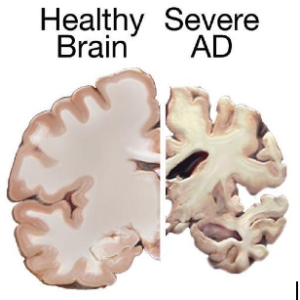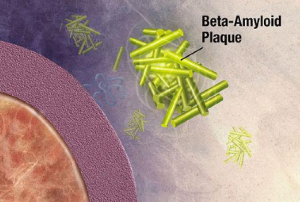“I am, along with many others, scrabbling to stay ahead long enough to be there when the Cure comes along’ said Terry Pratchett when donating to research on Alzheimer’s disease (AD). The writer had been suffering from a rare form of dementia, which starts at an unusually young age (he was diagnosed at the age of 59).

Image courtesy of graur razvan ionut at FreeDigitalPhotos.net
Why is the number of people with dementia increasing? The simple answer is: because we live longer. Some older people experience hardly any changes in their memory with age; many may become more forgetful and think more slowly, but otherwise their mind will remain intact. Age, however, is the greatest risk factor for dementia, an illness that affects 850 000 people in UK and gradually destroys our ability to remember, think, interact with others, live independently and look after ourselves.
Alzheimer’s disease, similar to the early-onset illness that affected Terry Pratchett, is the main culprit in dementia. It is responsible for 60–70% of cases and manifests in the brain as accumulations of sticky protein, which form plaques in the brain. The protein, called beta amyloid, kills the nerve cells and causes the brain to shrink. On the other hand, in vascular dementia (VaD) – the second most common killer – symptoms are caused by problems with blood vessels in the brain. Doctors diagnose the type of dementia on the basis of the pattern of symptoms and the brain images, which show them the areas of damage.

At the moment there is no cure for dementia. Some medications, if taken early, help to slow down the progress of AD. Medicine can also help with problems that accompany the illness, such as anxiety, agitation and depression. Finding a cure for dementia is, therefore, the great challenge for today’s research. So how far have scientists got when it comes to tackling it?
One of the questions that researchers are looking into is: why and how exactly do the sticky proteins accumulate in the brain? Here, Down syndrome has shed some light on the events in the brain. People with Down syndrome have an additional copy of chromosome 21. Apart from having some level of intellectual disability, they also suffer from increased risk of AD. By the age 65, 75% of individuals with Down syndrome have symptoms of dementia. It seems that the extra copy of chromosome 21 might be responsible for reduced level of a protein called sorting nexin 27 (SNX27). SNX27 lowers the level of beta amyloid by curbing the activity of an enzyme (gamma secretase) which produces the sticky protein.

Whilst gamma – and beta – secretases increase the production of beta amyloid, their sister alpha secretase, an enzyme called ADAM10, has the opposite effect. It blocks the growth of the sticky protein, whilst protecting the nerve cells. Scientists have discovered that a drug for psoriasis (skin problem) increases the activity of ADAM10 in brains of people affected by AD. However, before this medication can be used to treat AD, it has to be tested in extensive and lengthy clinical trials.
Other areas of science are focusing on the influence of diet and lifestyle on the risk of dementia. Researchers have found that older people who have a deficiency of vitamin D (the sunshine vitamin) are more likely to develop dementia. The greater the deficiency, the greater the likelihood of the illness: the risk for those with low levels of vitamin D was 53% higher, and for those with severe deficiency was 125% higher. This could be because vitamin D is not just a building block for our bones, it contributes to clearing the amyloid plaques in the brain and protecting the neurons. Lack of vitamin D can also cause problems with blood vessels, thus increasing the risk of vascular dementia.

Finally, some scientists investigating whether exercise can help us keep our brains healthy. Exercise fanatics will welcome the news that even if we carry a gene in which may predispose us to AD, a decent amount of exercise can protect our brains to some extent from shrinkage. ‘Decent’ in this study was equivalent to jogging, walking or swimming for at least 30 minutes a day, as well as playing sports, e.g. tennis, for at least an hour, but also – and this is good news for those of us who do a lot of housework – 45 minutes a day of fairly intense chores.
No ground-breaking news on the dementia front yet then. However, while we wait for scientists to find the cure, we can certainly look after ourselves and if nothing else, give ourselves a better chance of keeping dementia at bay with healthy lifestyle, good diet and exercise.
Post by: Jadwiga Nazimek
References:
http://www.bbc.co.uk/science/0/21878238
Littlejohns, T.J., Henley, W.E., Lang, I.A. and Annweiler, C. (2014) Vitamin D and the risk of dementia and Alzheimer disease. Neurology 2:920-928.
Flier, W.M. and Scheltens (2005) Epidemiology and risk factors of dementia. Journal of Neurology, Neurosurgery and Psychiatry 76:(Suppl V):v2–v7. doi: 10.1136/jnnp.2005.082867
Smith, J.C., Nielson, K.A., Woodard, J.L. et al. (2014) Physical activity reduces hippocampal atrophy in elders at genetic risk for Alzheimer’s disease. Frontiers in Aging Neuroscience 6:1-7
Endres, K., Fahrenholz, F., Lotz, J. et al. (2014) Increased CSF APPs-a levels in patients with Alzheimer disease treated with acitretin. Neurology 83: 1930-1935.
Wang X., Huang, T., Hong, W., and Xu, H. (2014) SortingNexin 27 Regulates Aβ Production through Modulating γ-Secretase Activity. Cell Reports 9: 1023–1033
Vitamin B12 Deficiency often is the explanation for dementia. Two years ago, my 95 year old mother was exhibiting dementia and hallucinations. When admitted to the hospital because of a minor stroke (no paralysis or speech problems), tests showed severe B12 deficiency. They started B12 shots. Within three days, all the dementia, hallucinations, and mental confusion completely went away. It turns out that even the stroke was a result of her B12 deficiency since her homocysteine elevated because of her deficiency and she developed a blood clot that ended up in her brain. Read the book, COULD IT BE B12? An Epidemic of Misdiagnoses. B12 is a water soluable vitamin so you can’t overdose on it. Especially for the elderly, vegans or vegetarians, B12 needs to be check. A simple and inexpensive sublingual B12 tablet will eliminate the deficiency.